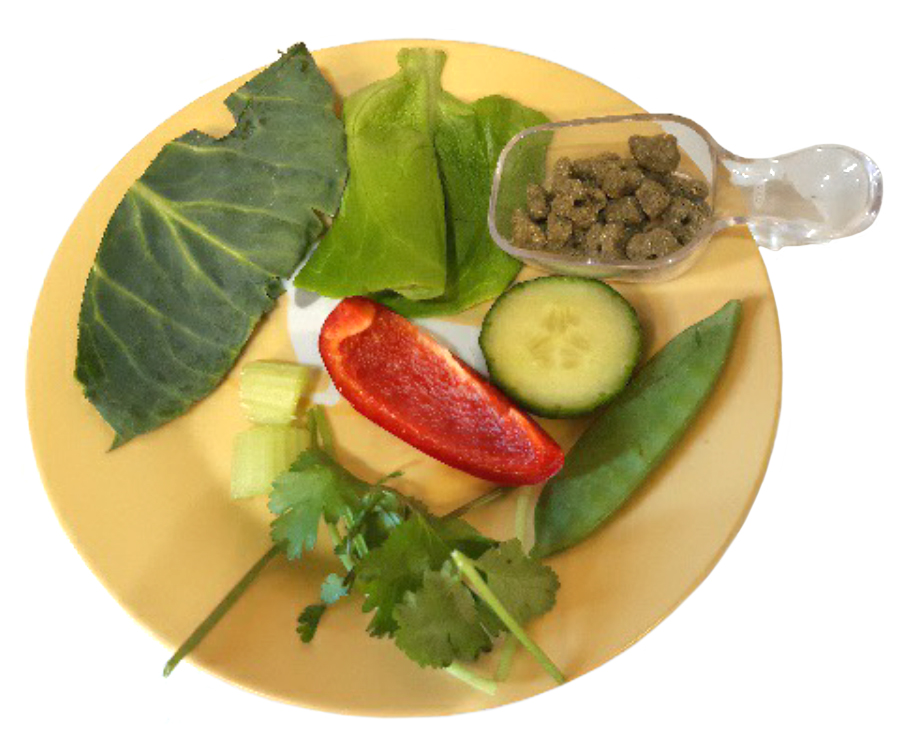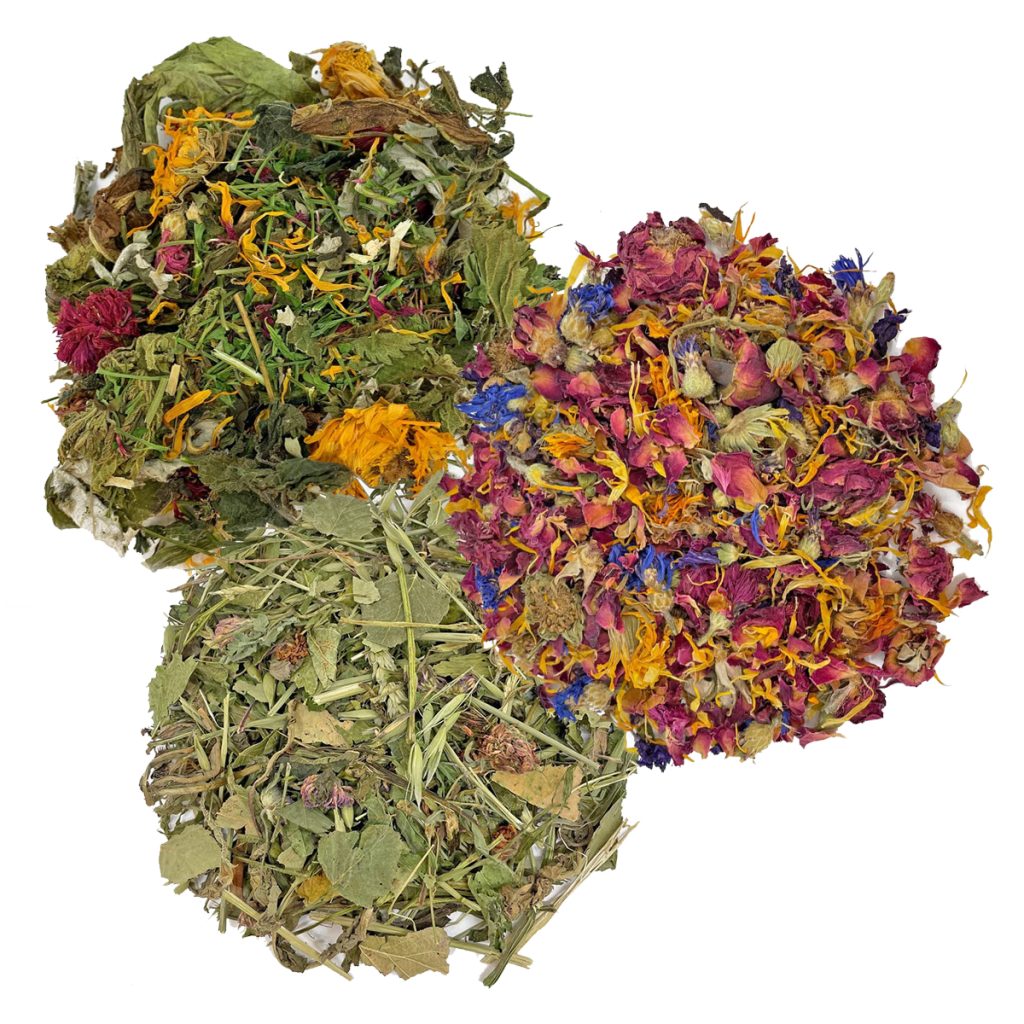Veg that can be fed daily
- 1 slice of any colour bell pepper
- 1-2 chunks of celery
- 1 chunk of cucumber
- 1-2 sprigs of fresh herb (vary)
- 1 slice of spring greens
- 1 leaf of romaine/cos or gem lettuce
- 1 treat veg of your choice

Example plate
Treat of choice
- Water Cress
- Chard
- Spinach (feed in moderation)
- Carrot Tops
- Mangetout
- Dandelion
- Kale (feed in moderation)
- Broccoli
- Sprouts
- Tomato*
- Orange / Mandarin*
- Strawberries*
- Melon
- Corn on the Cob
- Parsnip
- Courgette
- Apple*
- Pear*
- Blueberries*
- Green Bean
- Carrot (Small Piece)
You must ONLY feed one of those marked with a * each week.



